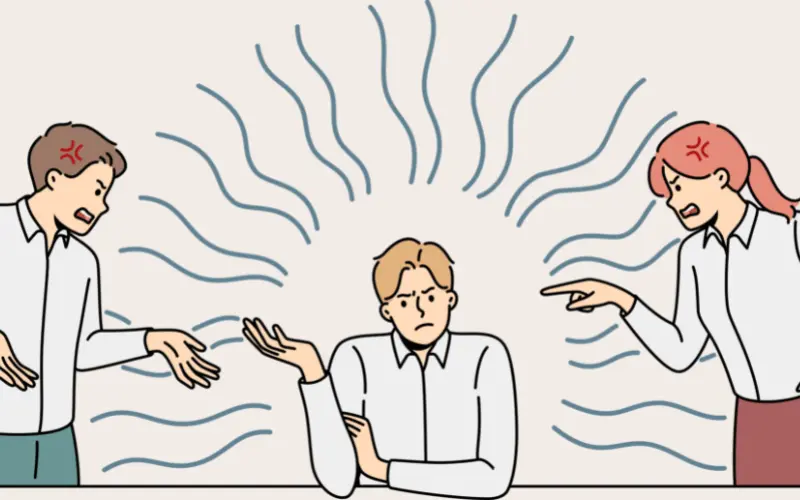Memory loss is the term used to describe the symptoms of various conditions that cause a steady reduction in a person’s ability to do daily tasks and interact with others. People who have dementia have memory loss as well as communication difficulties. They also have difficulties with reasoning and distinguishing between individuals, and they might lose track of what items are for at times. Even if the individual seems to be in good condition on the outside, their brain may not be functioning correctly on the inside for an extended period.
What happens when you have this condition?
Memory harm is a common sign of dementia. If a person with this condition also suffers from depression, it makes it more difficult for them to recall things and enjoy their lives as they age. Certain patients who have this condition also have hallucinations, which may cause paranoia, intense anxiety, and panic attacks in some cases.
Changes in the mental health of a person with dementia may be very challenging for caretakers, who must make sure they get assistance from an empathetic family member, a friend, a professional, or a support group when these changes take place.

There is a distinction between memory loss that occurs as a natural part of the aging process and memory abnormalities that occur as a sign of this illness. Forgetfulness may manifest itself in a variety of ways, like misplacing your vehicle keys or strolling into the kitchen and forgetting why you were there. When someone with dementia loses their vehicle keys, they may get confused about what they are supposed to do with them.
Memory loss in a person who is suffering from this condition is continuous and gradual rather than episodic in nature. It may impair a person’s capacity to continue working or to do routine chores in the future. It is thinkable that you may have difficulties finding your way back home. It is possible that you may lose your ability to dress and wash at some point.
Is there a way to prevent dementia from occurring?
There is currently no known technique to avoid all forms of dementia since researchers are still exploring the mechanisms by which the disorder manifests itself. However, there is strong evidence that leading a healthy lifestyle may help lower your chance of acquiring dementia as you become older.
Cardiovascular disorders, such as stroke and heart attack, may be prevented by maintaining a healthy lifestyle. These diseases are also risk factors for Alzheimer’s disease and vascular dementia, which are the two most frequent kinds of it.
The kind and underlying cause of this illness influence the treatment options available. Unfortunately, for certain types of dementia, such as Alzheimer’s, there is currently no recognized medication that people can use to slow or halt the course of the illness. Treatment options available to you include drugs that may temporarily lessen the intensity of your symptoms, counseling, and changes in your way of living.
Factors that increase the risk of dementia
When you have a risk factor, it means that anything enhances your chances of acquiring a condition. Change is difficult or impossible to achieve in certain dementia risk factors. These include factors such as age: the older you are, the greater the likelihood that you may get dementia. Dementia, instead, is not a normal component of the aging process, and genes alone are not responsible for the cause of dementia. Certain hereditary variables, on the other hand, are associated with certain of the less prevalent kinds. Dementia is most often due to by a mix of hereditary and “environmental” factors, such as smoking, a lack of regular exercise, and lower levels of education, among other things.
Is hallucination a symptom of dementia?
In certain cases, people who have dementia may encounter a variety of circumstances in which they will not see things as they actually are. Despite the fact that hallucinations and delusions are fictitious, they seem to the person who is experiencing them to be extremely real, and they may induce great worry, paranoia, and even panic.
It is also possible for some persons to mistakenly identify other people or oneself. For example, they may get alarmed if they are unable to identify themselves in a mirror when they look at it.

Inquire with the individual’s doctor about possible drug options. Doctors treat these illnesses with antipsychotic drugs, which may have unpleasant side effects such as stiffness, shakiness, or sleepiness. The negative effects of newer antipsychotic drugs are less severe, although they may still produce sleepiness. When delusions and hallucinations are causing a significant amount of distress, it may be necessary to try a drug for a period of time.
Diagnosis
Dementia is an umbrella word that encompasses the loss of cognitive ability that results in distinct varieties of dementia. Consequently, no one test can be used to detect whether or not someone has the disease. Accordingly, your doctor will do a complete physical exam that will also involve an in-depth medical history, laboratory tests, and brain scans such as a CT scan or magnetic resonance imaging (MRI) to assess whether or not the indications you are experiencing are associated with dementia.
Depending on the doctor’s expertise, they may be able to do further assessments in order to ascertain the sort of dementia that has occurred. A specialist, such as a neurologist, may be required to provide an appropriate diagnosis in the absence of a recommendation from your primary care physician.
Conclusion
If you or someone you care about is experiencing the signs and symptoms of dementia, it is vital that you practice self-care and seek assistance. Although there is currently no cure for some kinds of dementia, such as neurodegenerative dementias, your doctor may recommend pharmacological treatments and other lifestyle adjustments to alleviate symptoms and assist with everyday activities temporarily.
Patients and caregivers may also benefit from therapy, which they may get at no cost. The support person may need to seek more assistance as illnesses such as Alzheimer’s advance, such as in-home care, assisted living, or long-term care in a memory care center, depending on the severity of the condition.











